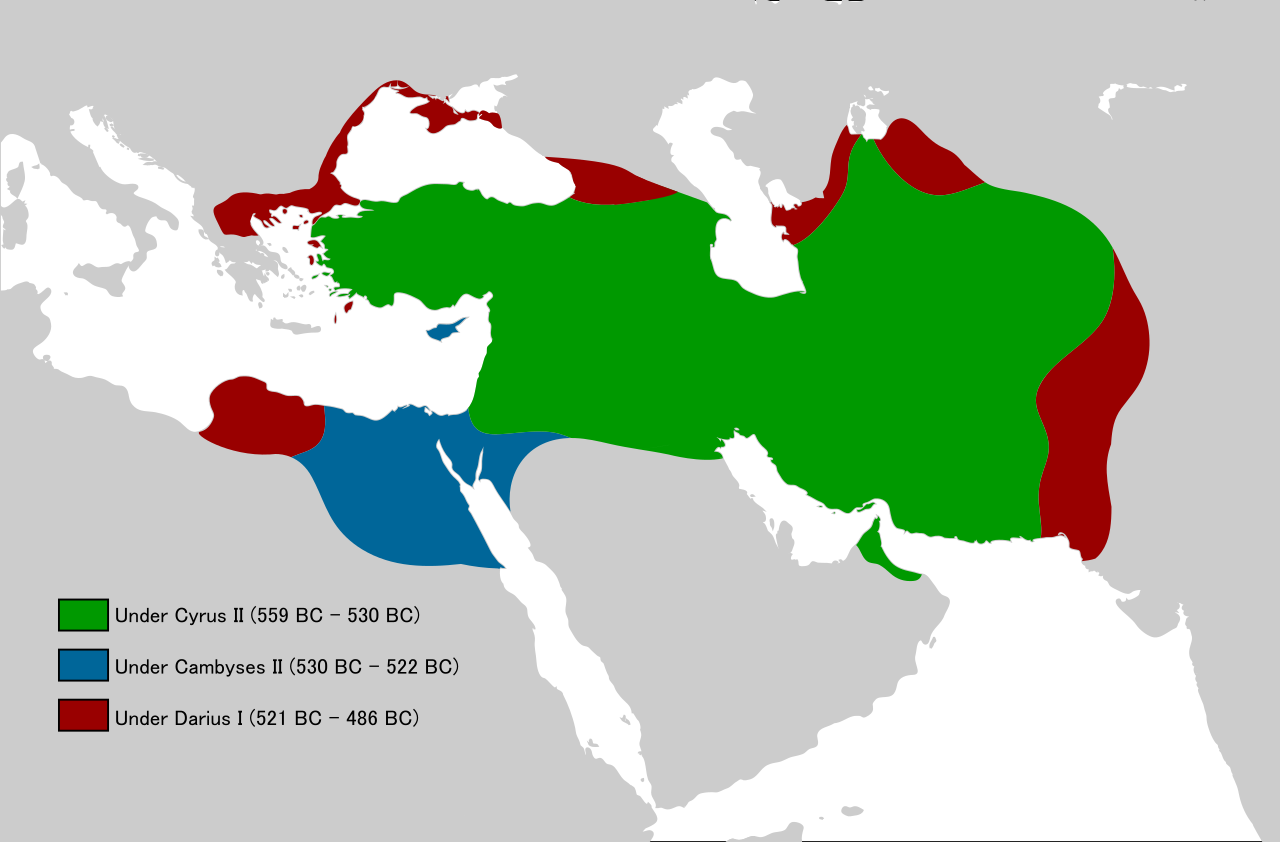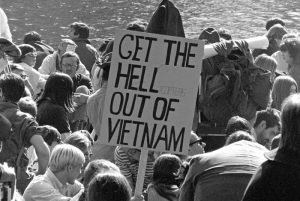
Views: 409
Preface
The Empire of Persia was the first global empire to cover the parts of the three continents (known at that time): Asia, Africa, and Europe.
The story of the Persian Empire starts after the end of the Assyrian state followed by the plunder of its political center – Nineveh, in 612 BC by Babylon which retained the lowlands of Mesopotamia, while at the same time the highland territory (in fact, Katpatuka/Cappadocia), which was westward to the Halys River (today Kizil Irmak) became incorporated in the state of its allies – the Medes. Cyrus, the Prince of Persia, rebelled in 550 BC and won over the Median king Astyges. As a political consequence, Cyrus united the eastern Persians and the western Medians (or Madas, Medes) to make Persia/Iran the dominant military-political subject in Central Asia and the Middle East. The Empire of Cyrus the Great (Cyrus II of Persia, in office from 550 to 529 BC, who established the Achaemenid Empire centered on Persia) soon became enlarged due to several successful military actions that resulted in the incorporation of Asia Minor’s Lycia, Lydia/Sparda, the Ionian Greek settlements, followed by Babylon/Babirush, and present-day Afghanistan.
The Achaemenid Empire (550−330 BC)
The Iranians who arrived from Central Asia came to dominate the territory of Mesopotamia. In fact, there were three crucial factors of their political-military success in the region: 1) Iron Age technology; 2) The knowledge to use the horse for both the military and communication; and 3) Their power and versatility which gave them the crucial advantage over the people who have been belonging to the more ritualized civilizations of the Antique. Soon after the death of Cyrus the Great in 529 BC his son Cambyses succeeded in winning over Egypt (at the same time his brother Smerdis was ruling over Iran) at the battle of Pelusium in 525 BC (at the Sinai Peninsula near the Mediterranean Sea – the territory known at that time as Arabaya/Arabia between Gaza and Alexandria). However, Cyrus’ sons soon started to quarrel but with fatal results as the usurper took the royal throne – a cousin of theirs Darius. He led a group of his supporters who have been fighting to restore the line of the Achaemenid family. Darius the Great (ruling the Achaemenid Empire from 522 BC to his death in 486 BC) reorganized the Persian Empire into 20 tribute-paying satrapies (provinces with the head of the satrap). He also established unified control, with a general Code of Laws, a stable currency, and an efficient postal service (one of the first in world history). Darius the Great became a master in administrative/civil affairs like his uncle Cyrus the Great was in military affairs. The Darius administration introduced regular equitable taxis, accurate weights, and measures followed by profitable monetary policies.
The (ethic) religion of Iranians – Zoroastrianism, did not fight for the converts which meant in practical life that all other religious denominations within the empire were tolerated like Judaism, or various forms of Egyptian, Mesopotamian, and Greek polytheistic beliefs. Therefore, both the communal harmony and the loyalty to the ruler were established and functioning. It can be said that three focal factors contributed to the Persian success in creating the three-continent empire: 1) Warfare traditions; 2) Artistic sensibility; and 3) Technical knowledge, especially in military engineering. In addition, two factors helped the Persian civilization to survive chronic invasions from the outside: 1) The firm national consciousness; and 2) A total respect for monarchical legitimacy.
Darius the Great established the Achaemenid Empire which had its greatest extent in up to that time history (479 BC). The empire stretched in Asia from across the Indus River in the East, to modern North Tunisia and Libya (Putaya) in Africa and modern Thracia/Thrace (Skudra) in Europe (the Balkans) followed by western littoral of the Black Sea with the Crimean Peninsula in the West (including the peninsula of Asia Minor), and from the River Jaxartes and the Aral Sea (lake) in Central Asia in the North to Sudan and Magan at the Arabian Peninsula (at the entrance to the Persian Gulf) in the South (including Mesopotamia, Palestine, and the Sinai Peninsula). He tried to extend his empire in Europe by launching war on Scythians on the territory of present-day Ukraine but was repulsed in 513 BC (the Scythians used the tactic of the “burned land”). In Greece, his policy to punish Athens and Eretria for their support of the Ionian Greek rebels in West Asia Minor against Persian rule led to his abortive invasion of Greek states in 490 BC (the Battle of Marathon). His son Xerxes organized an even more serious and massive invasion of Greece in 480 BC but was beaten at the sea at Salamis (480 BC) and on the land at Plataea in 479 BC.
Nevertheless, the Achaemenid Empire of Persia/Iran remained impregnable to the Greek-speaking world for a century and a half. Even more, Persia was the real winner at the end of the Peloponnesian War (431−404 BC) between Athens and Sparta and their allies. However, the political weaknesses of the Achaemenid Empire became seen when Cyrus the Younger (as the Persian viceroy of the western provinces/satrapies) recruited in 401 a military force of Greek mercenaries of “10,000” for the purpose of using them in his revolt against the brother Persian Emperor Artaxerxes II.
The end of the empire
The practice of these Greek mercenaries in attacking Babylonia (Babirush), in fact, paved the way for Alexander of Macedon in his attack on Persia, whose destruction of the army of the Achaemenid Empire of Emperor Darius III (336−330 BC) at Gaugamela in 331 BC finally brought the existence of the Achaemenid Empire of Persia to its end by barbaric burning of its capital Persepolis to the ground (like Greeks did the same with Troy/Ilion in around 1200 BC). Nonetheless, the Achaemenid Empire (550−330 BC) is remembered as the first state to have its borders on three continents: Asia, Africa, and Europe. The second one was going to be of Alexander the Great followed by the Roman Empire.
Dr. Vladislav B. Sotirovic
Ex-University Professor
Research Fellow at Centre for Geostrategic Studies
Belgrade, Serbia
www.geostrategy.rs
sotirovic1967@gmail.com
© Vladislav B. Sotirovic 2023
Personal disclaimer: The author writes for this publication in a private capacity which is unrepresentative of anyone or any organization except for his own personal views. Nothing written by the author should ever be conflated with the editorial views or official positions of any other media outlet or institution.
Origins of images: Facebook, Twitter (X), Wikimedia, Wikipedia, Flickr, Google, Imageinjection, Public Domain & Pinterest.
Read our Disclaimer/Legal Statement!
Donate to Support Us
We would like to ask you to consider a small donation to help our team keep working. We accept no advertising and rely only on you, our readers, to keep us digging the truth on history, global politics, and international relations.
FOLLOW US ON OUR SOCIAL PLATFORMS










